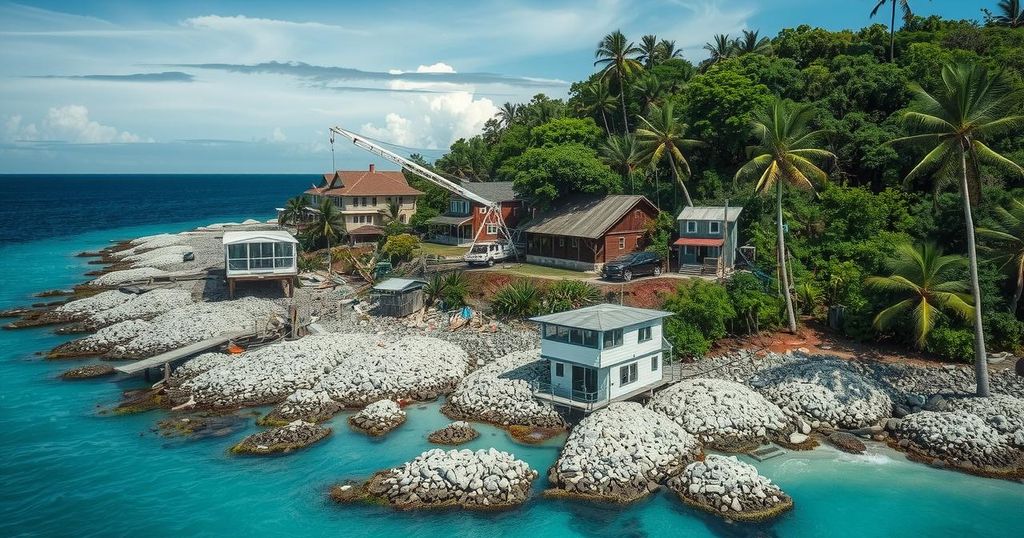Mayotte Island Faces Recovery Challenges After Cyclone Chido
Mayotte Island is undergoing severe recovery efforts following Cyclone Chido, the worst storm in nearly a century, which has overwhelmed local hospitals and destroyed neighborhoods. The island’s population, predominantly Muslim, faces extreme challenges due to systemic neglect and poverty, raising concerns over the death toll and adequacy of disaster response. Efforts are being made by religious leaders to mobilize community support for those affected.
In the aftermath of Cyclone Chido, which struck Mayotte Island, a French overseas territory in the Indian Ocean, the region faces severe recovery challenges nearly a week after the disaster. This cyclone, described as the most catastrophic in nearly a century, has left the island grappling with extensive damage and a strained healthcare system. Local hospitals, already short-staffed and under-resourced, are struggling to accommodate a surge of patients suffering from various afflictions, including injuries and dehydration.
The cyclone’s impact has devastated numerous neighborhoods, with reports indicating that many residents disregarded warnings about the storm. Migrants, fearing deportation, also opted to stay away from shelters, raising concerns that the death toll may be disproportionately high, potentially reaching into the hundreds or thousands. Mayotte, known as the poorest overseas territory in France and the European Union, has long endured systemic underfunding and neglect, which significantly hindered its preparedness for such a severe disaster.
This event has heightened skepticism among the population regarding the government’s capability to provide effective disaster relief amid these considerable challenges. Of the approximately 90,000 residents, the majority are Muslim, with a notable presence of Shia communities dating back to the 15th century. The disaster has also affected the small Christian minority, estimated at 3% of the population. One notable response came from Pope Francis, who expressed his condolences for the victims during a recent address, offering prayers for their well-being.
In a heartfelt message, Grand Ayatollah Sayyed Sadiq al-Husseini al-Shirazi conveyed his empathy for the cyclone’s victims, particularly emphasizing the suffering of believers and devotees of the Ahlulbayt. He prayed for divine mercy for the deceased and healing for the injured while calling for robust support from the community to aid in the recovery efforts. The Supreme Marja’s remarks underscored the need for collective action to support the affected islanders in this time of dire need.
Mayotte Island, an overseas region of France located in the Indian Ocean, is predominantly Muslim, with around 90,000 residents. The island has persisted as the poorest region within the EU, plagued by systemic neglect and underinvestment. Historically, Mayotte’s infrastructure and social services have struggled to meet the needs of its impoverished population. Cyclone Chido, which struck with unprecedented force, resulted in substantial devastation, compounding the challenges the residents face. The aftermath has drawn attention both locally and internationally, highlighting the urgent need for effective disaster response.
The devastation wrought by Cyclone Chido on Mayotte Island has exacerbated existing vulnerabilities in a region already grappling with poverty and lack of infrastructure. The humanitarian implications are severe, with health services overwhelmed and many residents in despair. Calls for community support and swift government action are critical in addressing the immediate needs of the population. Additionally, the responses from religious leaders reflect a collective spirit of compassion and responsibility toward assisting the affected individuals as they navigate this crisis.
Original Source: shiawaves.com




Post Comment